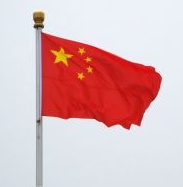When China said it would lift price caps on drugs, the move was heralded as welcome relief for drugmakers. But as Bloomberg reports, the optimism may have been premature. Yes, the price caps won't affect most drugs beginning June 1. But foreign drugmakers are facing pressure to cut their prices voluntarily--more than ever.
The difference is that the pressure is coming in the provinces. For some time, provincial governments have been using new bidding systems to bring down their drug spending. The tenders had put a major squeeze on domestic drugmakers. Now, officials are pushing multinational drugmakers to go along with the price competition--and in at least one province, Big Pharma has been dropping out of the bidding.
Many foreign pharmas have stopped selling certain meds to public hospitals in regions where prices are lowest, the news service reports. Just take a look at first-quarter sales for foreign drugmakers, and you'll see that sales are down for companies selling older, off-patent products--Merck KGaA's Glucophage, a.k.a. metformin, for instance.
That's a big change. Off-patent meds may see U.S. sales tank as soon as generics hit the market. But Big Pharma has major brand recognition in emerging markets, and Chinese patients see those meds as higher-quality--read less risky--because of counterfeiting and manufacturing shortfalls that have put domestic drugmakers' products in doubt.
 So, Big Pharma has been able to charge more--much more--even for off-patent meds in China, Deloitte China's Angus Cole told Bloomberg. As much as 40% more, in fact.
So, Big Pharma has been able to charge more--much more--even for off-patent meds in China, Deloitte China's Angus Cole told Bloomberg. As much as 40% more, in fact.
Not so in Zhejiang province, where foreign drugmakers bailed out of bidding for almost two-thirds of supply contracts, according to local media. In Hunan Province, GlaxoSmithKline ($GSK) tried to negotiate prices with the state on 31 different meds but then abandoned half those efforts, a Chinese analyst told Bloomberg. Pfizer ($PFE) participated with 12 products and gave up on 9, while Roche ($RHHBY) pulled its cancer med Herceptin there.
These companies can still sell those meds in the province at the retail level, but not through public hospitals, which handle about 70% of medication dispensing in China.
As Bloomberg notes, the national government wants drugmakers to stop charging a premium for off-patent drugs in China compared with other countries--the abandonment of price caps notwithstanding. As Sun Zhigang, vice minister for healthcare reform and medicine policy at the National Health and Family Planning Commission, said at a press conference last Friday, "The prices at which we now buy patented drugs and unique drugs are falsely high."
- see the Bloomberg story
Special Report: Top 10 drugmakers in emerging markets